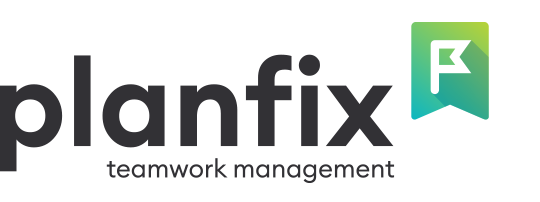
CRM is a powerful tool to improve a company’s customer loyalty and secure a sustainable competitive advantage. Through a blend of people, practices, and technology, enterprise customer relationship management (CRM) deepens the understanding of potential customer needs. By offering personalized products and services, CRM becomes an important tool to increase customer satisfaction, foster lasting loyalty, and ultimately stand out from the competition. The strategic implementation of CRM extends beyond mere transactions and serves as a catalyst for meaningful interactions that strengthen the bond between companies and their customers.
In this article, we explore the topic from various perspectives to examine the decisive factors that go into choosing a CRM system. We’ve investigated the different levels of importance that enterprise CRM systems have for organizations and explore how this is transforming not only the management of customer data but also business processes themselves. Join us on this journey to understand why CRM for enterprise is not just a technological tool but a driving force for sustainable excellence in organizations.
Explore the Advantages of CRM for Enterprises
In the rapidly evolving business world, enterprise customer relationship management (CRM) systems have become indispensable. These solutions are specifically designed to address the complex challenges of managing extensive customer interactions and large data sets. Let’s explore the benefits CRM brings to businesses and how these systems overcome challenges to streamline business operations.
1. Comprehensive Customer Insights and Personalization
CRM systems provide companies with comprehensive customer insights by consolidating and analyzing data from different touchpoints. This holistic outlook empowers companies to understand the preferences, behaviors, and expectations of their customers. With this knowledge, they gain the ability to personalize interactions and customize products, services, and communications according to the specific needs of each customer. The result is a more engaged and satisfied customer base that fosters long-term relationships.
2. Smooth Coordination and Cooperation
Effective communication is crucial for a successful business. CRM systems offer a central platform for managing cross-departmental communication, ensuring that teams are well-informed and aligned. These systems support seamless collaboration through real-time updates, shared calendars, and collaboration tools, enhancing internal communication and leading to improved efficiency and coordinated efforts.

Changing task deadlines on the Gantt chart
3. Advanced Sales Pipeline Management
Managing a complex sales pipeline presents a multifaceted challenge for organizations. Enterprise CRM systems provide advanced features for managing the sales pipeline, from lead generation to conversion. These solutions include automation tools that track interactions and provide real-time insights into the sales process. Such automation and transparency streamline sales operations, reduce manual labor, and accelerate the sales process.
4. Robust Data Security and Compliance Measures
Enterprise-grade CRM solutions focus on key aspects such as data security and compliance. These systems employ strong measures to protect sensitive customer data, including encryption protocols, access controls, and regular security audits. Compliance with data protection laws is critical for reducing the risks of data breaches and non-compliance.
5. Scalability for the Growth of the Company
As companies grow, their CRM needs change. Enterprise CRM systems, designed with scalability in mind, can easily adapt to a growing customer base, expanding teams, or diversification of products and services. This flexibility allows companies to adjust their CRM infrastructure to meet changing business requirements.
6. Utilizing Analytics and Reports to Make Well-informed Decisions
In the dynamic field of business management, making data-driven decisions is crucial. CRM systems offer powerful analytics and reporting tools that provide valuable insights. These analytics illuminate customer behaviors, team performance, and overall business efficiency, aiding in strategic decision-making and business growth.
In summary, the advantages of CRM systems for businesses extend beyond simple customer data management. These platforms are instrumental in improving customer relationships, streamlining operations, securing data, and fostering sustainable growth.
How CRM Can Help Enterprises?
In today’s competitive business landscape, enterprises increasingly turn to customer relationship management (CRM) systems to enhance operations and customer experiences. These systems offer numerous benefits tailored to the needs of large organizations.
Improved Customer Relationships
CRM systems enable enterprises to build stronger connections with their customers. By aggregating and analyzing data from various sources, businesses can gain a comprehensive understanding of customer behaviors and preferences. This insight allows for the personalization of interactions, customization of offerings, and delivery of exceptional customer experiences, fostering long-term loyalty and retention.

Customer request manager’s planner
Improved Collaboration
Effective collaboration is crucial for enterprise success. CRM systems facilitate seamless communication via task chat, providing efficient collaboration across teams and departments through features like real-time updates and shared calendars. Diverse workspaces provide flexible access management, allowing access only to the information or tasks a team needs. By promoting greater synergy and efficiency, enterprise CRM systems enable enterprises to achieve their objectives more effectively.
Data Security and Compliance
Data security and compliance are top priorities for enterprises. CRM platforms integrate advanced security protocols, such as encryption algorithms and multi-factor authentication, to safeguard confidential customer data. Additionally, they adhere to stringent data protection laws, mitigating the potential hazards associated with security breaches and regulatory violations. This comprehensive approach to data security and compliance sets them apart, ensuring peace of mind for businesses and customers alike.
Why Planfix Is the Best Solution for Enterprises
Planfix is the first choice for companies looking for the best enterprise CRM software solution, and for several reasons. First, Planfix’s versatility allows for seamless integration with existing business processes, minimizing disruption during implementation. With a user-friendly interface and customizable features, Planfix adapts to the unique needs of any business, whether in finance, healthcare or manufacturing. Integration with the most popular services enables teams to use the platform most effectively, and Planfix API allows them to integrate and implement their own programs and tools.
In addition, Planfix goes beyond traditional CRM functionality to offer advanced project management tools, workflow automation, and data tags. This comprehensive approach streamlines cross-departmental processes, boosts productivity, and promotes strategic decision-making process. With Planfix, companies not only nurture their customer relationships, but also optimize internal processes, paving the way for sustainable expansion and success.
FAQ about CRM for Enterprise
Do I Need an Enterprise CRM System or a Standard CRM?
The choice between an Enterprise CRM system and a standard one depends on the specific needs and objectives of your business.
If your enterprise deals with complex customer interactions, extensive data management, and requires scalability, an Enterprise CRM system would be more suitable. Standard CRM systems are ideal for smaller businesses with simpler requirements and lower data volumes.
How Much is a CRM Solution for Enterprise?
The cost of a CRM solution for enterprises varies based on factors like the provider, features included, customization requirements, and the number of users.
Enterprise CRM solutions typically offer tiered pricing plans to accommodate varying business sizes and budgets. Additionally, costs may include implementation, training, and ongoing support fees, so it’s essential to consider the total cost of ownership. Compare Planfix price plans for different teams.
How to Implement Enterprise CRM?
Implementing an Enterprise CRM system involves several steps, starting with assessing business needs and selecting the right CRM solution.
The next steps include planning for data migration, customization to align with business processes, user training, and deployment. It’s crucial to involve key stakeholders from different departments throughout the implementation process to ensure a smooth transition and maximize the system’s effectiveness.
Final Thoughts
CRM plays a central role in improving business processes. When organizations understand the benefits of CRM, they can use it to improve customer relationships, foster collaboration, ensure data security, and increase success. To this end, Planfix is the first choice for businesses, as it offers customized solutions to effectively meet their specific requirements.

